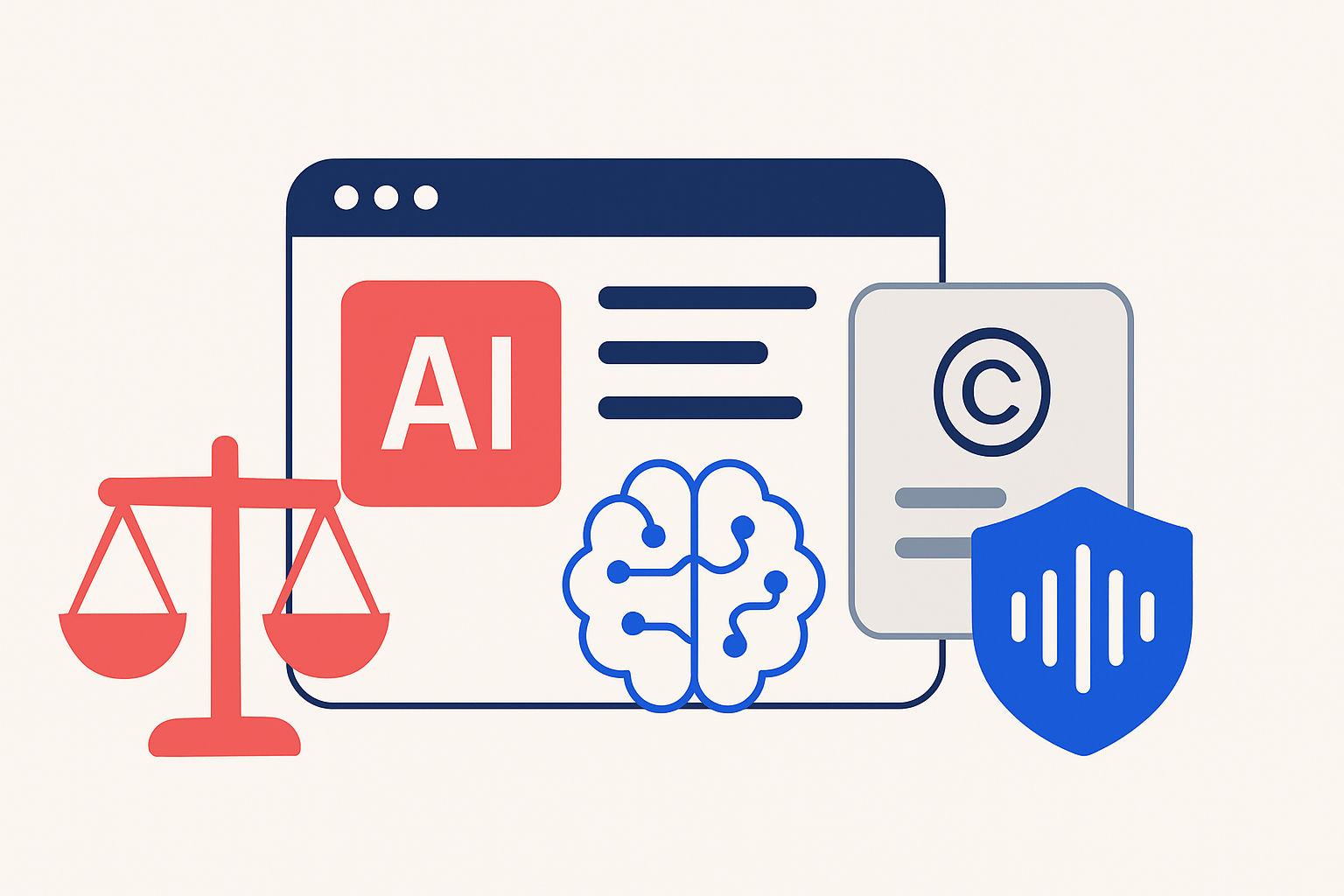How AI Copyright Rules Affect Automated Content Production

Businesses and content creators are leaning more heavily on AI-generated content than ever before, but the laws that govern intellectual property in this space are complex and still evolving. The question of ownership—whether companies, end-users, or AI providers hold rights—is becoming central to digital strategy. Without clarity, organizations risk missteps that could drain both time and resources. At the same time, platforms like Audiorista make digital publishing faster and safer by helping creators maintain control of their intellectual property while scaling content production. Audiorista’s platform is designed to empower publishers with robust rights management, secure streaming, and flexible monetization options, making it a strong choice for those navigating the rapidly changing landscape of AI content production.
This article unpacks how copyright frameworks apply to AI, the implications for automated content law, industry-impacting rulings, and the role of secure publishing tools in protecting AI-generated works.
Exploring AI copyright and industry impact
AI copyright rules govern how creative works generated or assisted by algorithms are treated under intellectual property law. At the core of the debate is whether AI is legally capable of authorship. In many jurisdictions, only content created by a human qualifies for copyright protection. This leaves a gray area when it comes to AI-generated works: are they owned by the developer of the AI, the end-user who directed the prompts, or are they excluded from copyright altogether?
In the United States, the Copyright Office has asserted that works created entirely by AI without human involvement may not qualify for copyright registration. By contrast, the European Union and other regions are actively exploring new frameworks that assign rights differently. The global perspective highlights fragmentation: what’s valid in one country may be unenforceable elsewhere. For publishers scaling across borders, staying compliant means keeping pace with multiple regulatory environments simultaneously.
Automated content refers to the use of software and AI systems to generate media assets like text, audio, or video at scale. For media companies, automated content production promises efficiency, speed, and vast creative output. However, automated content law complicates adoption because copyright scrutiny intensifies when outputs are machine-derived.
If businesses can’t secure ownership, then automated content becomes difficult to commercialize. Scaled campaigns using video scripts or automated audio narrations can be undermined if their copyright is challenged. Beyond ownership disputes, licensing becomes an issue. Companies adopting automated content at enterprise scale need to confirm the legal basis for reuse, syndication, translation, or any other derivative work. These constraints mean automated content law isn’t just an abstract legal debate—it directly affects scalability and adoption rates across industries.
The legal and technical safeguards for AI-generated content
The AI legal impact on intellectual property rights is already evident through rulings and challenges that question what qualifies as authorship. Several cases have underscored difficulties courts face when deciding whether works created by algorithms fall into copyright or public domain. In some rulings, outputs generated without human creative input have been declared ineligible for protection. This has consequences for businesses investing in large-scale automated publishing.
When AI-driven works are classified as public domain, they may be freely used by competitors. The AI legal impact, therefore, isn’t limited to regulatory paperwork—it creates direct business risk. Publishers and digital-first organizations attempting to protect unique assets may find their rights unenforceable if they can’t demonstrate meaningful human authorship. This makes it essential for companies relying on AI to align their processes with emerging legal standards and maintain documentation of human contribution where necessary.
Even with uncertain copyright frameworks, businesses can still take steps to secure material produced with AI. Technologies like Digital Rights Management (DRM) and secure streaming protocols help ensure AI-generated works are protected against unauthorized use and piracy. Using these safeguards, companies maintain stronger control even when copyright law may not yet provide clear remedies.
Strategies for protecting AI-generated content with DRM include encryption, access controls, and protected delivery formats that prevent unlicensed redistribution. For publishers and platforms pushing audio or video content at scale, these mechanisms form a practical layer of defense while legislatures and courts finalize long-term regulatory rulings. By combining technical security with rights-compliant publishing tools, businesses create a safer trajectory for automated content adoption. Audiorista’s secure audio streaming leverages HLS with DRM, ensuring only authorized listeners access your content and providing advanced protection against unauthorized sharing or downloads.
Making the right platform choice for AI publishing
Not all publishing platforms approach AI-generated content the same way. Generic AI tools may emphasize speed and low cost but overlook compliance and intellectual property rights. That makes them risky for publishers who need certainty in ownership and long-term control. By contrast, AI-safe platforms balance innovation with built-in compliance structures.
This is where Audiorista stands out, offering a trusted environment for AI-powered audio publishing. Its framework emphasizes rights management and secure distribution, ensuring creators don’t sacrifice ownership as they scale projects. Audiorista’s platform provides a no-code builder, automated app creation, paywall and subscription options, and detailed analytics—features designed to help publishers monetize and protect their content efficiently. For organizations evaluating reliable AI publishing alternatives, choosing a platform that integrates digital rights protection into its design reduces both legal exposure and operational risk. With Audiorista, publishers can confidently integrate AI workflows without losing control over the intellectual property that fuels their business growth.
Take control of your AI-generated content with Audiorista—publish smarter, protect your creations, and grow your reach with a platform designed for modern digital rights.


